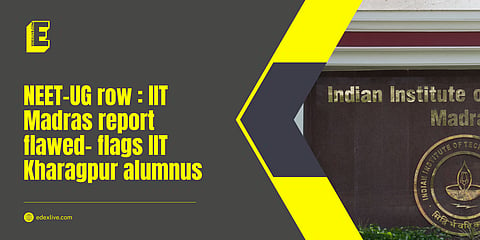

The Centre, on July 10, submitted an affidavit in which it stated that there is neither an indication of mass malpractice nor a localised set of candidates being benefitted leading to abnormal scores based on the report prepared by the Indian Institute of Technology (IIT) Madras.
The Centre had engaged the Indian Institute of Technology (IIT) Madras after the July 8 hearing to conduct a thorough technical investigation of the exam results.
For this purpose, IIT Madras conducted city-wise and centre-wise data analyses for two years (2023 and 2024) to find out if there were any abnormal indications. The analysis was carried out for the top 1.4 lakh ranks, given that the total number of seats across the country is around 1.1 lakhs.
The report further stated that there was an overall increase in the marks obtained by students, specifically in the range of 550 to 720. This increase is seen across the cities and centres. This is attributed to a 25% reduction in syllabus.
A few people have questioned the credibility of the report, claiming that the institute is providing favourable data analysis to support NTA.
Vivek Thakur, an IIT Kharagpur alumnus, in a recent appearance on the India Today said the data was manipulated. He further accused that IIT Madras has a quid pro quo with NTA.
Later, in a post on X (formerly Twitter), he accused IIT Madras of returning a favour to NTA owing to a previous case in 2017.
“In JEE(Advanced) 2017, the attorney general submitted a bundle of lies in the honourable Supreme Court at the behest of IIT Madras to rescue it from imminent cancellation of exam and order of retest- due to unfair bonus marks distribution caused by massive printing errors in the question paper", the post read.
To recall, in 2017, a petition was filed by Aishwarya Agarwal, an IIT aspirant challenging the grace marks distributed for wrong questions by IIT. The petition sought the court’s direction to declare that the action of awarding “bonus marks” to the candidates who had appeared in the JEE (Advanced) 2017 examination was wrong and violated her rights, as well as those of other students.
She demanded to award marks for the incorrect questions to the candidates who had attempted the right answers. The plea had sought that the IIT Madras should re-conduct the examination and the merit list should be prepared based on the new result.
The accountability of IIT to conduct JEE (Joint Entrance Examination) was questioned. Dheeraj Sanghi, an ex-Professor of IIT Kanpur in his blog wrote, “People who have followed this blog would know that my confidence in the fairness of JEE and in the competence of the IIT system to conduct a large public exam has always been very low. Every year, we see wrong questions. Every year, we see that IITs don't respond to alternate answers by external experts (or even internal experts).”
The Supreme Court is going to hear the NEET exam irregularities petitions on Thursday, July 18 after it was deferred by the Chief Justice of India (CJI) DY Chandrachud on July 11.
